by T. Sabaratnam, December 3, 2004
Chapter 26
Original index to series
Original Chapter 27
Massive Fund
In April 1984 Pirapaharan met for the first-time Tamil Nadu Chief Minister M. G. Ramachandran, idol of legions of Tamils.
The meeting bonded them and brought about a historic change in the freedom struggle of the Sri Lankan Tamil people. MGR’s benevolence made it possible for Pirapaharan to realize his vision of transforming the LTTE into a national liberation army.
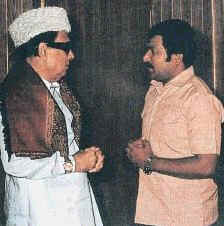
M.G. Ramachandran and Pirapaharan, February, 1985
None have figured out the chemistry of their attachment. Panrutti S. Ramachandran, MGR’s minister and specialist on Sri Lanka, could only say, “It was some chemistry.” The meeting brought them very close and MGR called Pirapaharan “Thamby” (younger brother) with a rare show of affection and respect. And Pirapaharan returned that respect and affection in full measure.
MGR showed interest in meeting Pirapaharan since he had heard about him. Perhaps the skilled film star who played the role of the upholder of justice and protector of the oppressed found in Pirapaharan a life model of the role he played on the silver screen.

Panruti S. Ramachandran (r) with M.G. Ramachandran & K. Karunakaran
MGR evinced interest in the plight of the Tamils in Sri Lanka, especially those of the hill country. He was born in Kandy when his parents lived there. The 1983 riots that created an upheaval in Tamil Nadu, the crossing of TULF leaders to Chennai and the refugee problem drew his attention to the Sri Lankan Tamil problem.
And the Sri Lankan Tamil problem led to a contest between MGR and his main political rival, M. Karunanithi. MGR and Karunanithi were earlier together in the Dravida Munetta Kazhalagam, a Dravidian political party, founded by C. N. Annadurai. It ousted the Congress from power in 1967. Thereafter a power struggle developed between the two over the question of succession to Annadurai, who died of cancer, and MGR broke away and formed his own political party, the Anna Dravida Munnetra Kazhalaham (ADMK). MGR stormed to power in the 1977 election, the same year Jayewardene swept to power in Sri Lanka. Action-loving Pirapaharan was an MGR fan. So was Baby Subramaniam (Ilankumaran), Pirapaharan’s trusted lieutenant and liaison man in Tamil Nadu.
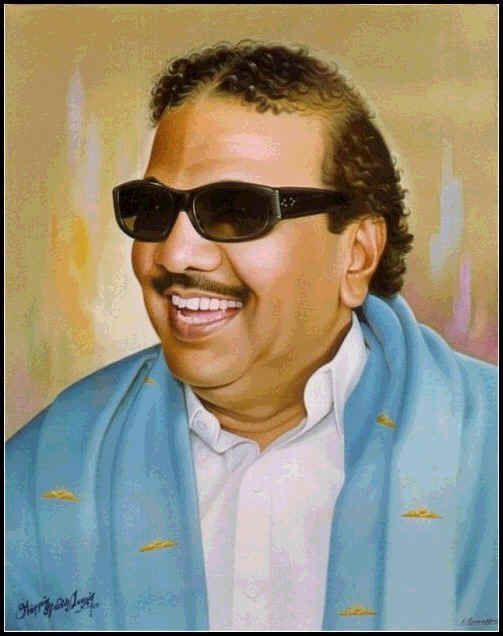
M. Karunanidhi
Tamil Nadu’s intelligence service, Q branch, kept MGR briefed about the Sri Lankan Tamil militant groups that functioned from Tamil Nadu. MGR kept an eye on them because Karunanithi, who prided himself as the leader of the Tamils in the world, was trying to gather Sri Lankan Tamil militants around him. In fact, leaders of three militant groups, TELO’s Sri Sabaratnam, EROS’s Balakumar and EPRLF’s Pathmanabha were constant visitors to Karunanithi’s office. Politically shrewd Pirapaharan kept a distance from Tamil Nadu politics. He reasoned that the Tamil freedom struggle needed the blessings and support of the entire Tamil Nadu and getting close to one faction would antagonize the other.
Mohandas, Deputy Director General of Police (Intelligence) who headed the Q Branch, kept MGR informed about the Tamil militant groups and their relationship with Karunanithi. He told MGR that the LTTE was the best of the Tamil militant groups and its leader, Pirapaharan, was the most capable and committed of all the leaders. He also briefed MGR that all militant groups had their intelligence wings, but the LTTE’s was the best.
MGR told Mohandas, in the first week of April 1984, that he wanted to meet all the militant leaders and impress on them the need for unity, the topic much talked about during that time in Tamil Nadu and among expatriate Sri Lankan Tamils. The reasoning behind the unity move was that unity among militant groups would strengthen the Tamil freedom struggle. Pirapaharan was not convinced about that argument. His past experience had taught him that unity only helps to internalize the conflicts and contradictions. “Instead of fighting from outside they fight inside,” he is reported to have said. (I will deal with unity moves and the ENLF later).
MGR: The Man
MGR, the shrewd politician, wanted to make capital out of the general desire in Tamil Nadu for unity among the militant groups. Mohandas, who had established contact with the leaders and cadres of the militant groups, organized the meeting. The media gave wide publicity to the meeting.
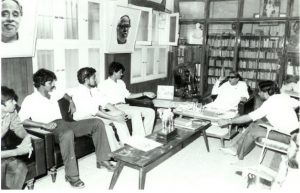
TELO, EROS and EPRLF leaderships with DMK and Tamil Nadu Opposition Leader Karunanidhi
In April 1984, Balasingham and Adele lived in a house in Thiruvanmiyur. Pirapaharan lived in another house nearby. The LTTE political office was at Indira Nagar at Adayar. One day, while Balasingham was in the political office, an intelligence officer from the Tamil Nadu police delivered an invitation from the Chief Minister for a meeting of Tamil militant leaders to be held at the Chief Minister’s office. The intelligence officer informed Balasingham that the meeting was to explore the possibility of forging unity among the five main militant groups. MGR had been voicing his concern about militant disunity for some time. He repeatedly voiced the slogan ‘Unity is Strength.’
Balasingham received another invitation for a similar meeting from Karunanithi the following day. The meeting had been fixed for the day prior to MGR’s meeting. The media gave publicity to that meeting also. The invitations from Tamil Nadu’s two top leaders posed a great problem for the LTTE, which had assiduously adhered to the policy of neutrality in Tamil Nadu politics.
Balasingham, in his Tamil work Viduthalai (Liberation), says he referred the two invitations to Pirapaharan, who decided not to attend either meeting. Two reasons prompted that decision. Firstly, Pirapaharan did not want to be dragged into the Karunanithi- MGR competition. He stressed that the Sri Lankan Tamil struggle needed the support of both of them. The Sri Lankan Tamils could not afford to antagonize either one of them. Secondly, Pirapaharan did not want to meet Uma Maheswaran at such meetings. Pirapaharan said their face-to-face meeting might lead to an unexpected clash. That would spoil the very purpose of the meeting.
Only three of the five militant groups attended Karunanithi’s meeting. Sri Sabaratnam, Balakumar and Pathmanabha attended the meeting. Like Pirapaharan, Uma Maheswaran also kept away. Yet, Karunanithi portrayed his meeting as a big political event and conducted a special press conference about it.
MGR was angry. He felt that Karunanithi had scored a political victory over him. He did not want to take defeat. He cancelled next day’s meeting with Tamil militant leaders. He devised an alternate strategy.
“That evening Mr. Alexander, Deputy IGP (Intelligence) met me in our Adayar office,” writes Balasingham in Viduthalai. “I knew him. He had helped us several times. He told me that the Chief Minister was angry with the three militant leaders who met Karunanithi. He wants to meet the Tigers this evening. He had ordered me to bring the Tigers to his estate, Alexander told me. I did not know what to say. I told him that I will have to take a decision after consulting the leadership. Alexander told me, ‘The chief minister is anxiously waiting to meet you. Don’t disappoint him.'”
Before departing Alexander told Balasingham partly as a warning, “It would be difficult to operate in Tamil Nadu by antagonizing the Chief Minister and the Tamil Nadu State.”
“Is he meeting Uma Maheswaran?” Balasingham asked.
“He will meet him on another day. He is particularly anxious to meet Pirapaharan.”
Balasingham consulted Pirapaharan. He told Balasingham that the meeting with MGR could not be avoided. He asked Balasingham to go with Baby Subramaniam, Shankar and Nithiyanandan for the meeting. Nithiyananthan was the editor of LTTE publication Viduthlai Puligal. Pirapaharan told Balasingham that he would meet MGR later if he insisted on such a meeting.
MGR received the LTTE delegation with affection. He asked, “Has not your leader Pirapaharan come?” Balasingham told him that he was out of Chennai and he would come for the next meeting.
MGR asked, “Why didn’t you attend Karunanithi’s conference?’
Balasingham replied, “You were the first leader to call the conference on unity. Karunanithi wanted to beat you and called another conference a day earlier. We did not attend it because we thought he wanted to get political advantage by doing so. So we decided not to attend.”
MGR’s face brightened up. “You have understood Tamil Nadu politics,” he said.
He then asked, “Why are you split into different groups. Why can’t you get united?”
Balasingham took that opportunity to explain to MGR the genesis of the ethnic problem in Sri Lanka, the emergence of the various militants groups, the LTTE’s philosophy and structure, its commitment to the cause, and the discipline and motivation of its cadres. He showed MGR photographs and video clips of the atrocities committed by the Sri Lanka army.
MGR asked, “What about Uma Maheswaran? I hear that he is saying that his organization is the true LTTE. What is the trouble between Uma Maheswaran and Pirapaharan?”
Balasingham told him that the people of Tamil Nadu call all militant groups Eelathu Puligal and, due to this, the acts of indiscipline of the other groups attributed to the LTTE. Then he explained that Uma Maheswaran was once a member of the LTTE, but he had been expelled.
MGR then inquired about the Indian training and financial assistance.
Balasingham told him that Indian training was limited in nature. It trained only 200 LTTE cadres. India was discriminating against the LTTE. It had trained more men from other militant groups. He told MGR that India was training more cadres from the groups that were not active. He said the weapons given by India were not sufficient and were not modern. He explained that India was trying to make use of Tamil militants to attain its national interest.
After listening to everything Balasingham said MGR asked, “Now I understand everything. Tell me what I should do? What is the help you expect from me?”
Balasingham answered, “The 200 cadres India trained are totally insufficient to fight the Sri Lankan army. We need at least 1,000 fighters. To train the balance we are planning to open training camps in Tamil Nadu. Then we have to arm them. That needs money. Will you give us financial help? That will be the turning point in our struggle. If you give us that help our people will be ever grateful to you.”
MGR asked, “Alright. What is the amount you expect from me?’
This is how Balasingham records the moment:
“I did not know how to reply. “We may need a big sum,” I dragged. He asked again, “That’s all right. Tell me the amount you need?” Sensing the difficulty I was facing Shankar intervened. He said, “We may need at least two crores (20 million rupees). One crore to train 1000 cadres and another crore to buy them weapons.” The chief minister exclaimed, “Only two crores. You (pointing to Balasingham) come tomorrow at 10 p.m. in the night with a vehicle and collect the money.” We were dumbfounded. We praised MGR for his benevolence and promised to bring Pirapaharan the next time.”
Balasingham and others went to Pirapaharan’s residence to convey the happy news. Pirapaharan refused to believe it. Balasingham and others told Pirapaharan that they were not joking. Then Pirapaharan told them that he would meet MGR in a few days and personally thank him.
Balasingham went to MGR’s estate the next night in a van. Ragu drove the van. MGR was there at the entrance of his residence waiting for Balasingham.
MGR stepped out when he saw the van and directed it to be parked close to the entrance. He welcomed Balasingham.
“Who is this boy?” he inquired pointing to Ragu.
“He’s Pirapaharan’s trusted bodyguard,” Balasingham replied.
MGR was satisfied. He took Balasingham inside. He conducted him to a lift. It descended to the basement. When the door opened, MGR took Balasingham to the middle of the room. Two sturdy men were guarding the room. It was lined with boxes.
MGR talked to the guards in Malayalam. He told them, “Give him two.” They took out 20 boxes. They placed them inside the lift. Then they went up to the ground floor. The guards loaded the boxes into the van.
Balasingham says he thanked MGR. Then he asked for police escort. He told him that if he were caught by the police with so much of cash there would be trouble. MGR telephoned the police. Two police jeeps with armed men arrived. MGR instructed the police officer in charge to take the van to Balasingham’s place.
“A jeep with armed policemen went in front. Another jeep with armed policemen tailed us. Ragu and I drove along the Chenai streets in a procession with two crores of rupees to our Thirvanmiyur residence. Our leader Pirapaharan, finance secretary Thamilenthi and Col. Shankar and some other cadres were waiting for us. The police officer came to me and took leave. Police jeeps drove away,” Balasingham recollects thus their windfall experience.
The boxes were taken into Balasingham’s bedroom. They opened the boxes one by one. They contained neatly arranged bundles of hundred rupee notes. Each box contained one million rupees. When they completed the counting, it was almost dawn. Pirapaharan announced that he would meet MGR soon to thank him.
Pirapaharan was thrilled. So were the others. They were undergoing severe shortage of funds at that time. They were running the organization with the limited contributions some expatriates made. At times Pirapaharan was feeling frustrated. He was not in a position to implement the plans he had envisioned- the plan to convert the LTTE into a national liberation army. MGR had made it possible for Pirapaharan to make his plan a reality.
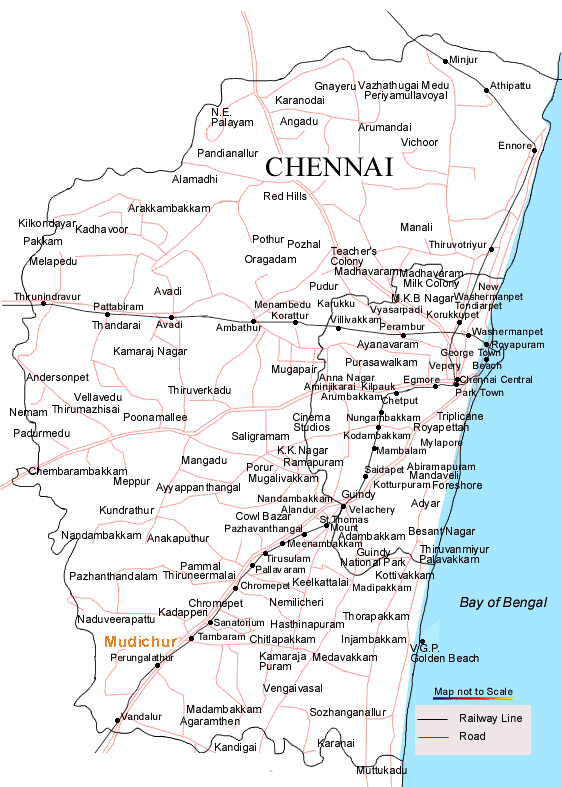
Pirapa Meets MGR
Pirapaharan met MGR that week itself. Balasingham accompanied him. MGR received Pirapaharan with affection. They were instantly attracted to each other. MGR treated Pirapaharan like his younger brother. MGR started calling Pirapaharan ‘Thamby’ with affection.
MGR asked Pirapaharan about his parents, sisters and brothers, his childhood, his dreams and visions. When Pirapaharan related to him the difficulties he underwent as a young guerrilla, MGR was visibly moved. When Pirapaharan related to him the atrocities the Sri Lankan army committed on the Tamils, he was intensely distressed. The meeting ended with this firm promise: Thamby! Whenever you need anything, ask me.”
“The discussion was general in nature,” records Mohandas in his work MGR: The Man and The Myth. “MGR listened patiently, but it was apparent that instant rapport was established between MGR and Pirapaharan, the LTTE supremo.”
MGR had the habit of inviting the people he liked for breakfast. Soon after the first meeting, MGR’s secretary rang Balasingham one morning and asked him to bring Pirapaharan for an urgent meeting. “The Chief Minister is waiting for him,” the secretary told Balasingham.
They rushed to MGR’s residence. The secretary received them at the entrance of the house and conducted them to the dining room. MGR was there. “Come Thamby come. I want you to have breakfast with me,” he said.
Idly was served first with saddni and sambar. Thosai followed. Poori and Uppuma were served thereafter. Balasingham was a diabetic and, in the rush, he forgot to take his insulin injection. He was struggling. MGR noticed that. “My guests must eat well,” MGR chided Balasingham He looked at Pirapaharan. He was pleased. Pirapaharan had polished the plate clean. “Look at Thamby,” MGR said with satisfaction. “That is the way to honour the host. You are not doing justice to the food served to you,” he told Balasingham.
 MGR signaled the waiter. He brought more idly, thosai and sambar.
MGR signaled the waiter. He brought more idly, thosai and sambar.
“I am a diabetic,” Balasingham pleaded. And he added, “I have not taken the usual insulin injection. I am under diet control. I should not eat too much.”
MGR smiled. “I was also a diabetic. Now I am cured. Who said you should not eat if you have diabetes? Who is the fool who is treating you?” MGR asked.
Balasingham told him that he took insulin injections regularly. He said his life depended on insulin.
MGR repeated that diabetes could be cured. He said his doctor had told him so. He then summoned his doctor.
MGR told the doctor: Balasingham says he is a diabetic and he says diabetics cannot be cured. I told him that diabetics could be cured. You are an expert. Now, tell us who is correct?”
Doctor told MGR: Sir what you say is correct.”
MGR asked the doctor: How long will it take to cure diabetes?” And MGR provided the answer to his query. He said, Two weeks would be sufficient. Is it not?”
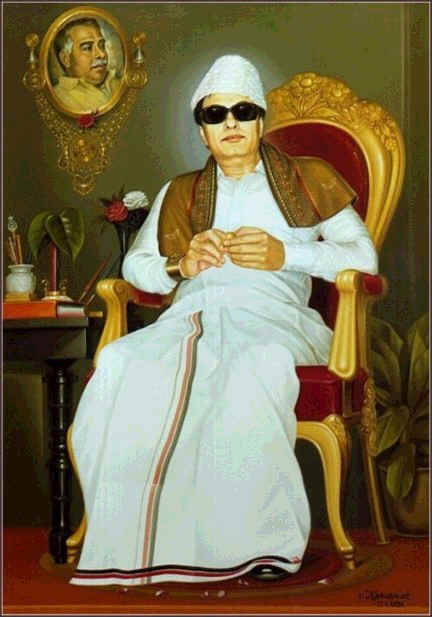
MGR
The doctor replied in the affirmative.
“Right doctor. You take him with you and admit him in the hospital,” MGR ordered.
Balasingham looked at Pirapaharan, who kept a serious appearance. Balasingham knew Pirapaharan was enjoying the fun.
Pirapaharan burst laughing when they were out of MGR’s estate. Balasingham turned to the doctor and asked him why he lied to MGR.
The doctor replied: How could I contradict the Chief Minister? Nothing is lost now. You come to the hospital and take rest for two weeks.”
Balasingham obeyed. He entered the hospital and took two week’s rest…
Pirapaharan and Balasingham were invited for breakfast three months later. Balasingham took an extra dose of insulin before he went. MGR asked Balasingham, “How is your diabetes? Have you recovered?” Balasingham replied: Yes Sir, Thank you very much.” He said he ate everything that was served and MGR was pleased.
MGR clears weapons
Adele says in The Will to Freedom that Pirapaharan shrewdly used the funds given by MGR to establish several training camps in Tamil Nadu, to recruit a large number of new cadres, to purchase new weapon systems, and to expand the political and propaganda work.
Pirapaharan set up the Arms Procuring Unit under KP to buy modern weapon systems from the illicit weapons market. KP purchased a container-load from Lebanon and sent it in a foreign ship to Chennai harbour. The container was packed with AK47s and RPGs (Rocket Propelled Grenades), sniper rifles, explosives, night vision devises, anti-tank weapons, advanced radio and communication systems and ammunition.
The container arrived in May 1984. An unexpected problem arose in clearing the container through customs. The efforts the LTTE made to clear it failed. Customs officials whom the LTTE approached were reluctant to assist because a similar arms-container imported by PLOTE had been confiscated the previous month. The Delhi government refused to help when approached by PLOTE.
Customs officials seized a large container PLOTE tried to import on 2 April 1984 from Hong Kong when it was unloaded from a ship at the Chennai Port. They confiscated it because it contained a large stock of weapons – 1400 rifles, 300 sten guns, five Japanese wireless sets, an electronic radio set with an amplifier and a large quantity of ammunition – though the customs declaration said it contained “used newspapers.” PLOTE bought these arms from a Taiwanese arms dealer. PLOTE leaders made frantic efforts to get the arms consignment released. They telephoned New Delhi officers and they got the Communist party parliamentarians to speak to the new Prime Minister, Rajiv Gandhi. They also got Tamil Nadu Congress parliamentarians to speak to the prime minister.
Rajiv Gandhi told the Tamil Nadu Members of Parliament that he could have helped if he had been informed in advance. He said that he was now not in a position to help as the media was aware of it. “Ask them to forget about it,” Rajiv told the Communist MPs.
Pirapaharan, as I have pointed out earlier, is a devotee of the Hindu God of Action, Murugan. He vowed that he would go on a pilgrimage to the Murugan Temple at Palani if the container of weapons was cleared. He fulfilled the vow as soon as the container reached the LTTE hideout. He spent a day fasting, praying and thanking Murugan for helping him to get the weapons cleared. He also thanked MGR.
The seizure of PLOTE’s weapons container was intended to give a message to all Tamil militant groups that they should depend on the weapons supplied by India. Pirapaharan was aware of New Delhi’s message. New Delhi wanted the Tamil militant groups to do their bidding and nothing more. The role New Delhi gave to the Tamil militant groups was that of a pressure group. Their task was to exert military pressure on Jayewardene to compel him to work out a political settlement with the TULF. New Delhi supplied the militant groups weapons which its military experts thought were sufficient to do that work.
Pirapaharan realized that New Delhi would not help him to get the weapons container released. He sent Balasingham to MGR to get his assistance. Balasingham met MGR at his residence and told him of their difficulty and that the weapons had been bought with his money. Only if they were released could Pirapaharan be able to take forward the Tamil freedom struggle.
Balasingham records with appreciation that MGR did not show any reluctance. He telephoned a customs officer, wrote his name in a piece of paper and asked Balasingham to go and see that officer. “He would do the needful,” MGR told him.
Pirapaharan gave that job to Shankar. The container was transported with police escort to the LTTE’s hideout in the outskirts of Chennai. The excess were stocked in Balasingham’s bedroom.
Pirapaharan met MGR soon after the container was released to thank him. He presented him with an AK47 and said, “This was imported with your money.” He demonstrated to MGR how to dismantle the gun and assemble it. MGR appreciated the gift.
MGR’s benevolence did not end there. In 1985, when the LTTE expanded its activities it needed money. Pirapaharan sent Balasingham to speak to MGR. “How much do you need?” he asked.
“Five crores.”
MGR told Balasingam not to worry and he gave four crores (40 million rupees) from his own money.
MGR died in December 1987 after being sick for over a year. Balasingham paid him a visit early that year when he was hospitalized. MGR sat up and pulled the pillow towards him. From under the pillow he fetched the AK47 Pirapaharan had presented him nearly three years earlier. He showed it to Balasingham and said: Thamby presented this to me.”
MGR slept with Pirapaharan’s present under his head until he died.
Next: Chapter 28. The First Interview
To be posted December 10